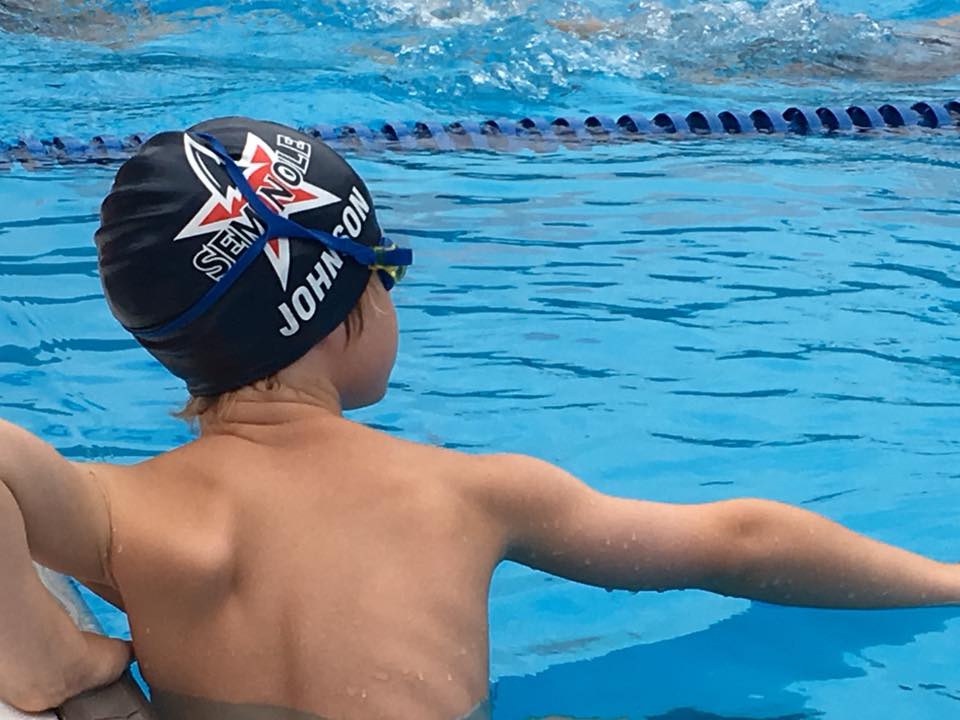My kids were excited to join a local swim team this summer. They practiced with their coaches for an hour a day, five days a week. And on weekends they chose specific strokes or events in which to compete with other swim teams.
It was amazing to see all the things they needed to pull together to compete: diving off the starting blocks, doing the stroke efficiently, swimming in a straight line, timing a handoff in a relay, and more. Many of these things, if done just slightly wrong, result in what’s called a DQ - a disqualification.
As a parent it’s fulfilling to see your kids’ accomplishments on the path to becoming strong and competitive swimmers. And it’s interesting how confident the kids are in what they’re doing, to the point where if you offer up a pointer or suggestion, they reply with:
“Nah - I’m doing it right.”
My husband and I were talking to a few other swim parents about this and we all shared the same experience. The thing that was allowing these kids to confidently pull all these skills together and compete was the same thing that was preventing them from identifying room for improvement.
When I think about it, it makes a lot of sense. If the kids questioned everything they did, they wouldn’t have the courage to compete. However, refinement is necessary for continuous improvement. This forced the question:
What’s the best way to get someone to consider they may be making a mistake without causing their confidence to crumble?
I can easily see how this problem exists in my adult life as well. At work, we need to have confidence in our skills or we’d spin our wheels and have zero output. This confidence can also come back to bite us if we’re not careful. Unless we’re perfect (and who is?) there are situations where we think we’re doing it right, but we’re not.
What’s the solution? Instead of blind confidence, we should start questioning ourselves. Obviously we can’t question everything we’re doing because that would damage productivity and destroy our emotional well-being. But I believe it may be healthy to question the situations where the final outcome didn’t match our expected outcome.
With the swimming example, if the kid is unexpectedly getting a DQ – help the child look at that situation. If the kid starts off strong but ends in last place, or starts off weak but ends in first - examine what’s causing those unexpected endings.
At work, is there an idea you’re confident about yet others aren’t catching on? Or are you working hard on a project but your external or internal client isn’t satisfied with the results? Start there.
Your first instinct is going to be to self-preserve and think “Nah - I’m doing it right.” Something or someone else must be causing the less-than-optimal results. But this mindset won’t help you resolve the situation.
How do you fix that view? In the situation with the kids, what the parents all discovered was if they could provide an objective outside view to the situation, the kids would conclude on their own that they needed help. The parents discovered the best thing to do was to use a cell phone to record the action the kid needed improvement on. They then showed the kid what they looked like - and compared that to a video of an expert doing the same thing. This allowed the kid to come to their own conclusions and course correct.
How can this be applied in the workforce? Well, for many of us, we can’t have our parents come to the workplace and tape us. But maybe you could ask permission to record (even if it’s just audio) your presentation of a concept to others so you can self-critique it later. Maybe you could record yourself practicing the delivery of a difficult conversation. Maybe you could have your spouse read an email you wrote or drafted to see if you can gain insight as to how others may interpret or read your message. Maybe you simply ask others for their honest feedback and listen as they explain things from their point of view.
It’s good to be confident. It’s a trait shared by successful people everywhere. But the willingness to be open to the possibility of improvement is what moves us all forward. Think about an area in your life where you’re working hard, but the outcome isn’t what you expected it to be.
Is there any chance you’re “not doing it right”?





